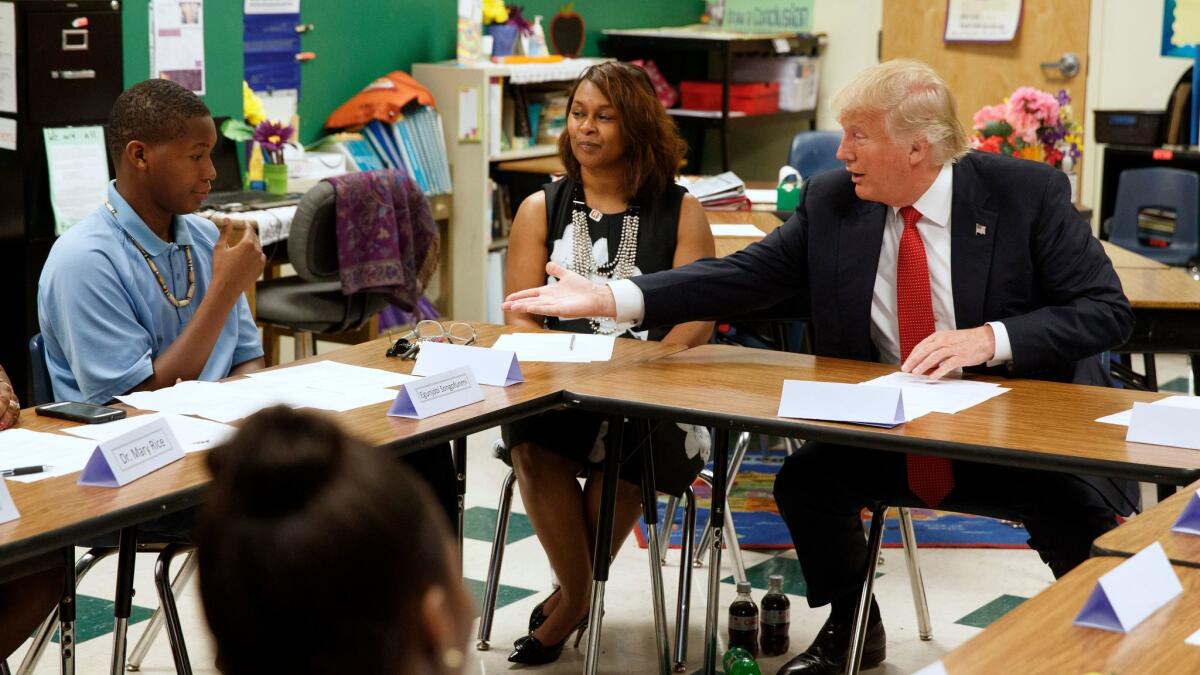Opinion: Why the Finnish method is the right way to test students

To the editor: Like Samuel E. Abrams, I subscribe more to the idea that merit ratings and pay undermine teamwork and to the educational practices in Finland than to the deeds of Betsy DeVos. (“Forget charter schools and vouchers — here are five business ideas school reformers should adopt,” Opinion, Jan. 8)
DeVos, Trump’s nominee to be the next secretary of Education, is unqualified. She was a poor manager of charter schools in her home state of Michigan. As a part-time Michigan resident, I have witnessed firsthand the damage done by DeVos.
When I ran the inner-city K-8 Federation of Boston Community Schools in the 1970s, we administered high-quality exams to small groups of students, just as the Finns do now. Teachers did not teach to the test, and students received a well-rounded education. The success of these parent-controlled community schools was documented in the 1974 Ford Foundation report “Matters of Choice.”
Philip S. Hart, Los Feliz
..
To the editor: Abrams’ fifth “business lesson” for schools is to stop testing every student but use only “high-quality exams administered to small groups of students,” as is done in Finland. Research by education psychologist David Berliner and his colleagues supports this recommendation: More testing does not result in higher test scores.
We can do this now using the National Assessment of Educational Progress, a highly respected standardized test given to small groups of students who each take a portion of the test every few years. Results are extrapolated to estimate how larger groups would score, and the NAEP is used to compare our achievement to that of other countries.
Let’s find out if the NAEP tells us what we need to know about performance and whether the time-consuming and expensive tests we currently give students add any useful information.
Stephen Krashen, Los Angeles
The writer is a professor emeritus of education at USC.
Follow the Opinion section on Twitter @latimesopinion and Facebook
More to Read
A cure for the common opinion
Get thought-provoking perspectives with our weekly newsletter.
You may occasionally receive promotional content from the Los Angeles Times.










